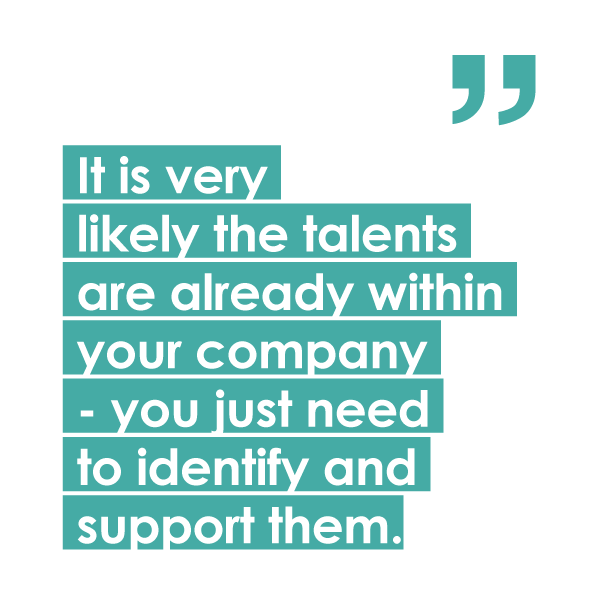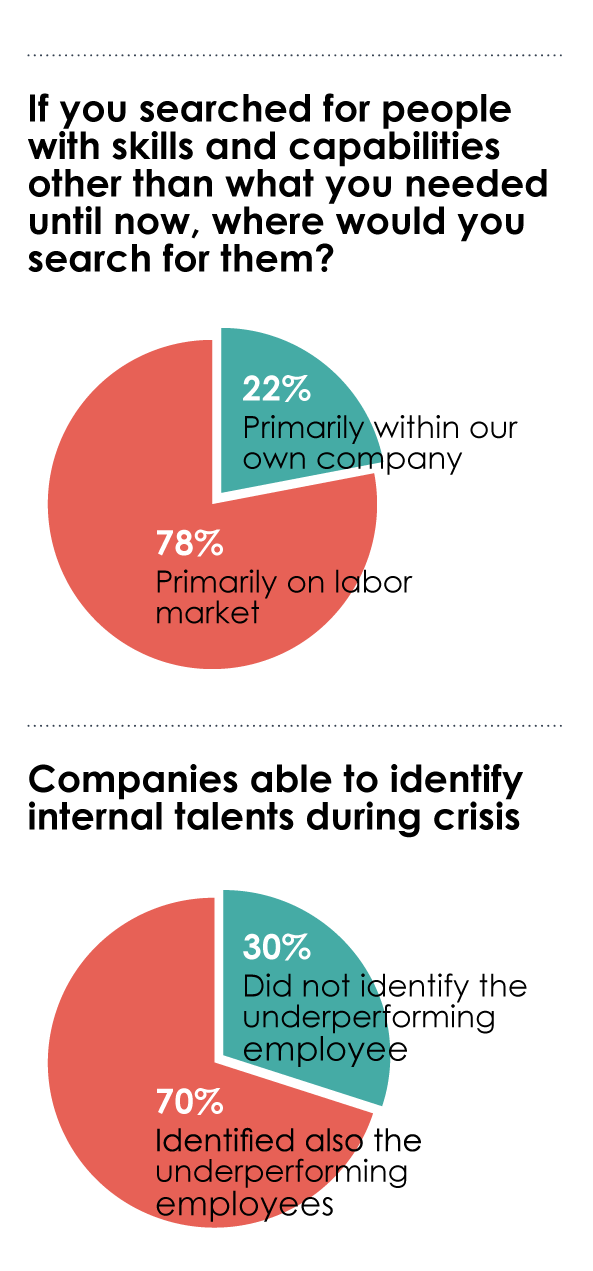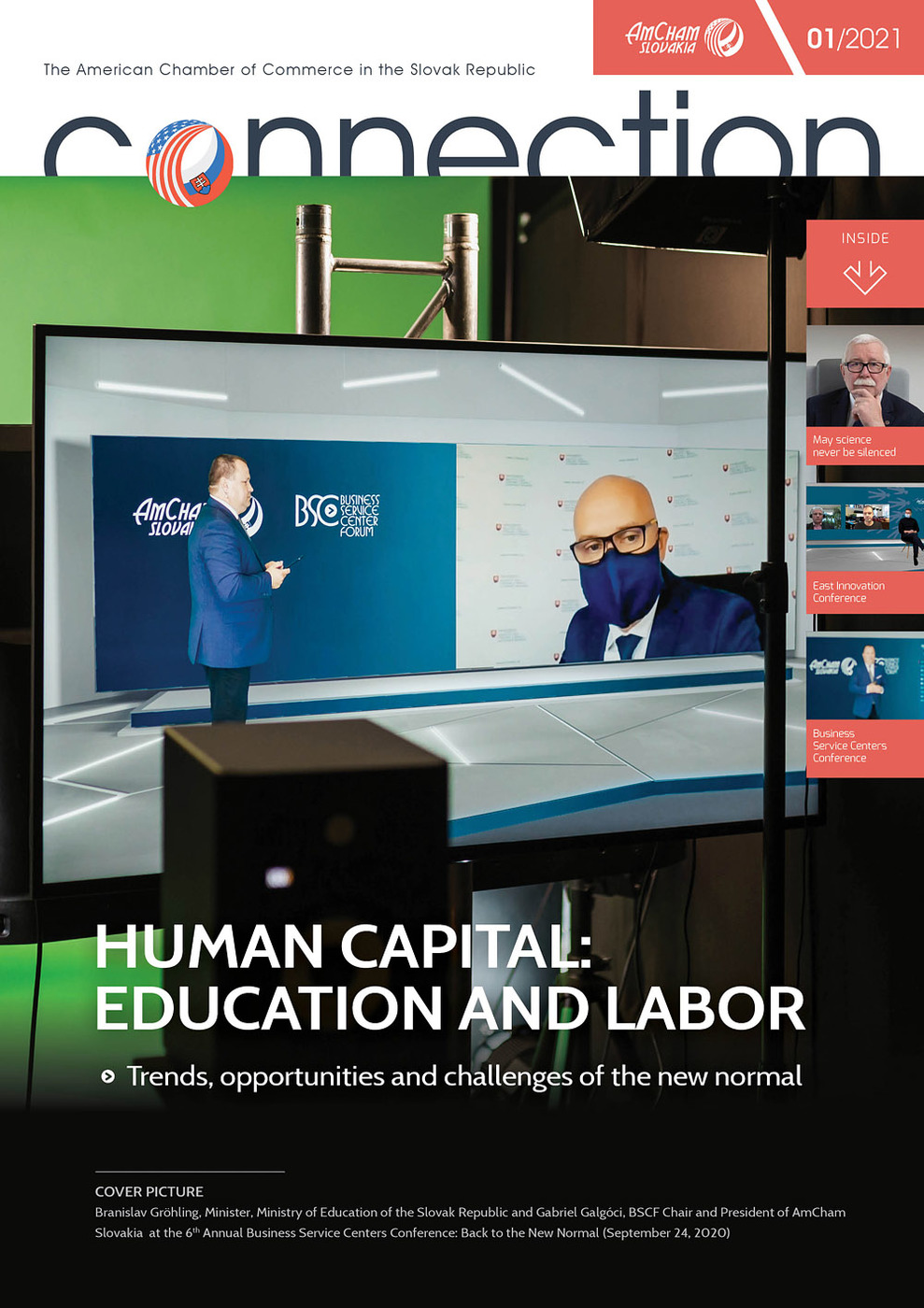My experience from the Slovak market and the outcomes of many global studies confirm that it is very likely the talents are already within your company. You just need to identify and support them.
 Talent and low-performance shown simultaneously
Talent and low-performance shown simultaneously
With the help of a special research agency we approached mid- and C-Level managers of Slovak companies, asking them about their work with talents. 60% confirmed they did not look for talent among their own employees during the crisis. This is clearly a mistake: previous crises have shown that companies with radical headcount cost cuts and cancelled innovation investments had problems to return to normal function afterwards. The importance of continuous talent work was also confirmed by the survey: seven out of ten companies which took care of internal talents were also able to identify people, who did not commit to the company`s success and were a burden.
If you support talent, your turnover might go up by a third
Most companies do not analyze whether they carry an ideal set of people onboard. But the fact is, every talented employee affects the company`s profitability to a high degree. Global analyses confirm that companies with culture able to attract talents reach a turnover higher up to 33%.
But how to identify the right people?
I have 17 years of experience in analyzing and defining companies` needs for specific profiles and skills and helping them find the right people for these roles. Recently, I specialize in building, restructuring and enhancing managerial teams with the new Human Capital Services at Grant Thornton. My answer to this question is simple: contrary to usual HR audits, it is not enough to take into consideration just the numbers and the tasks solved. I rather concentrate on the quality of people and the right fit. In the majority of cases the companies have talents among their staff, but unfortunately undiscovered. In times of growth, companies tend to extend business and recruit new external people instead of first searching for potential among their own people. And usually there is plenty of it. The survey confirmed it: only 22% of companies sought for talent primarily within their company. Especially during a crisis, companies feel the pressure to enhance their services, so they need new capabilities in the team. But the team leaders often cannot judge or do not see the potential and are not able to support it. External experts are often better able to identify the talents, as they are unbiased and bring experience from similar cases from other companies in the market.
 Up-skilling and educating own employees is much less costly
Up-skilling and educating own employees is much less costly
New employees cost an equivalent of 6-12 monthly wages till they reach the average performance of the existent ones. Not to speak about the amount of time required. Another argument is bureaucracy. Statistics show that at companies counting 200 and more employees the bureaucracy grows quicker then the company itself. Business consultant Gary Hamel states that bureaucratic positions (managers and admin) grew by 112% during last 35 years in the US, whilst the usual line positions grew by 47% only. This is a major factor hindering productivity growth.
Company culture decides how employees strive to perform
Talent-supportive internal culture is decisive. Those companies always attract the best people from outside and simultaneously motivate internal employees to show up and demonstrate their potential. Based on studies, Gary Hamel states, only one of five employees believe their opinion matters. This is a clear demotivator – people do not feel the need to enhance neither their performance, nor the company`s processes and products. Both the HR strategy and the internal culture influence how people participate in solving problems and bringing new ideas. Many company leaders in Slovakia think that employee development is the sole role of the HR department or personal coaches. But the more progressive way is to combine business and HR, so the development of internal culture and people is managed and owned by leaders, whilst HR with its insight and knowledge truly contributes to business enhancement.
Industry needs to reassess its usual ways
Building a company`s culture does not concern only administrative companies, but also the industrial sector. Typical industrial enterprises tend to function in very static and traditional ways for long periods of time. In this approach, only the numbers count. But industry truly needs new, flexible ways how to run its operations in a different way, so they do not suffocate under heavy company processes and bureaucracy. Industry needs to innovate not only in technologies, but also in the approach to internal organization and HR leadership. And that means also managing employees` knowledge and capabilities.
Andrea Vančíková, Human Capital Services Director, Grant Thornton



Follow us